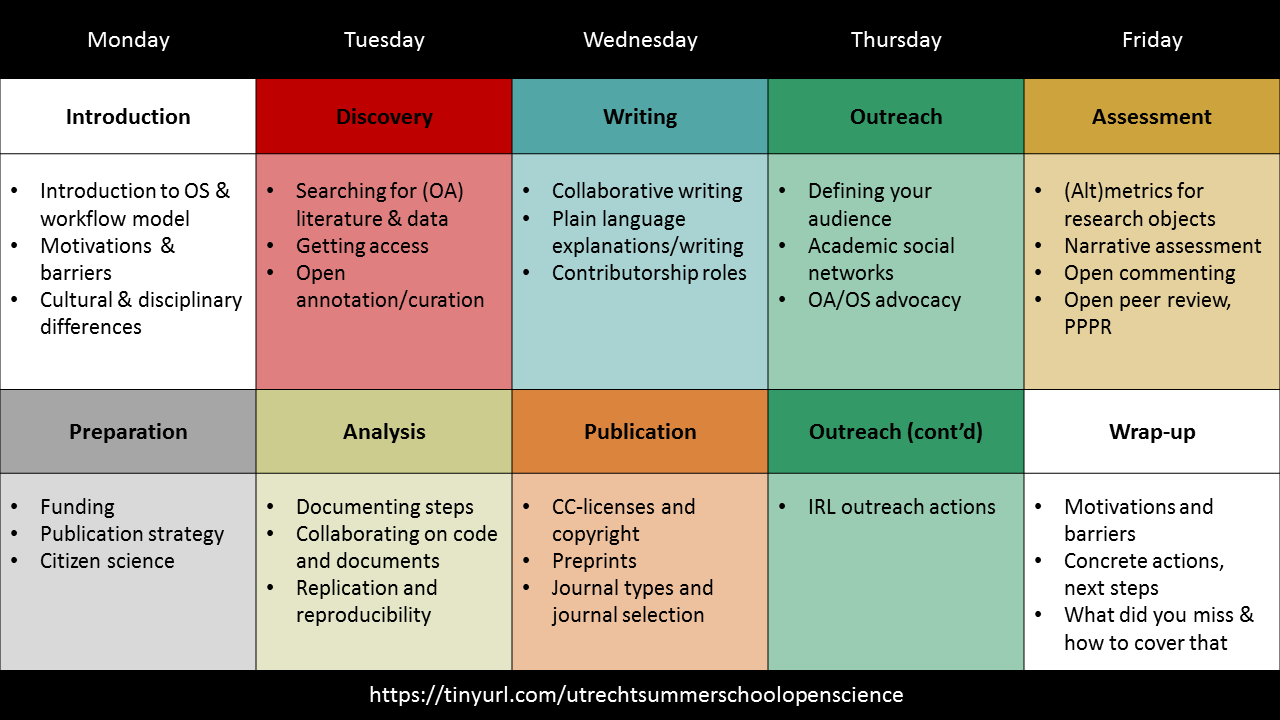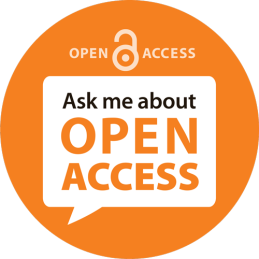Plunge into open science during summer school
Judit Fazekas and Eirini Zormpa attended a summer school course at Utrecht University Library last week. Most students came from far to learn more about open science. Fazekas: “Bianca Kramer and Jeroen Bosman are widely known for their huge knowledge about open science. That’s why I came to Utrecht.” The students plunged into all aspects of open science for a whole week.
You are attending the summer school open science. What is the reason you signed up?
Fazekas: “I wanted to improve my knowledge on open science. I heard a lot about Bianca Kramer and Jeroen Bosman. They are really good open science representatives and they have a wide knowledge on all aspects of it. The reason I wanted to come to Utrecht was to learn from them.”
“I thought Kramer and Bosman would be excellent people to teach me about open science.” Zormpa says, “I really like their approach towards open science and the idea of really opening up your workflow and targeting each specific part of it. Examining how each of these things can become more open, more reproducible if we’re talking about analyses.”
I wasn’t aware of open science. I became more familiar with it in the first year of my PhD.
“I wasn’t aware of open science. I became more familiar with it in the first year of my PhD”, Zormpa continues, “And the more I learned about it, the more I wanted to practice it. That’s what I’ve been trying to do ever since. Research takes a long time. I started with preregistration, which is at the beginning of the research process. As I went along, I tried to open up my process as much as possible. It’s a start.”
According to Fazekas the programme is really good. “I learned a lot and I love it. Kramer and Bosman are experienced open science practitioners. I’m working with open science every day and I hope I will be able to exploit the knowledge I learnt. What I have taught was above my expectations.”

What knowledge that you’ve learned this week will you take back home and use in concrete plans or actions at work?
“We have an open access week every year”, Fazekas proceeds, “On Thursday we had a topic on how to create a workshop. I just started to plan the open access week and I got really good feedback on how to do it better. So for sure I will take that back home. I will dive into data analysis, programming and improve my knowledge. That way I can effectively support researchers in their data management practices.”
Fazekas will spread the information she gathered and she will share it. “Of course! It’s open science after all.”
Eirini, do you have any concrete plans or actions to take back to Nijmegen after this week?
“Yes absolutely. I am going to integrate more version control in my data analysis. I won’t overwrite my scripts, so you can see how they change over time. The broader things I want to do, is to start an open science community in Nijmegen like the one in Utrecht. It’s still in early stages, but we’re looking into what we can do. I also want to learn to share things with my own department. So when I get back, I’m going to give a presentation to my department on what I learned this week. What could be useful to other people also on my level. Open science has so many facets to it and keeping up to date can be challenging, but it’s also really rewarding.”
The future definitely lies within open science.
What will be the future of open science?
Fazekas: “At the University of Debrecen we have an institutional repository (DEA) where we handle open access content. For our researchers it is mandatory from 2015 onwards to put all their research work into the repository and make it open access within twelve months. About fifty to sixty percent of the researchers are aware of this, the rest is reluctant. We are supporting article processing charges for pure gold open access journals. We are trying to help the researchers comply with their open access mandates. Next to that we have a project of mapping up the data needs of our university, because we would like to get ready with our data repository by the end of 2019. So we are working with open science every day.”
“The information life cycle changes so rapidly, we need to be informed by the transforming research and communication alternatives. The future definitely lies within open science.”

“There are things that are already happening”, Eirini says, “Open access publication for example, because of the requirements from funders. The same goes for data. Personally, I really like the idea of preregistration. That is something I would like to see become the norm. It’s good for science and good for researchers individually.”
“Preregistration means that before you start conducting the research, you write everything down. This is the data I will collect from them, this is exactly how I will analyze my data. These are the things I expect to find. So you can’t claim things as they happen during an experiment. It personally helps me to be as specific as I can ahead of time. To test hypotheses, you must be really honest with yourself. And then you prepare better. That way you can also find gaps in your design and that will benefit the actual research.”

Judit Fazekas works at the University of Debrecen, Hungary, as a research support librarian. In her day-to-day life she is the leader of the open access team.
Eirini Zormpa is a PhD student from the Max Planck institute in Nijmegen. She is originally from Greece and she has a background in literature and linguistics studies. She is now doing a PhD in psycholinguistics. In her research, she tries to understand why people remember the things they say better than the things they hear, especially during dialogue.

